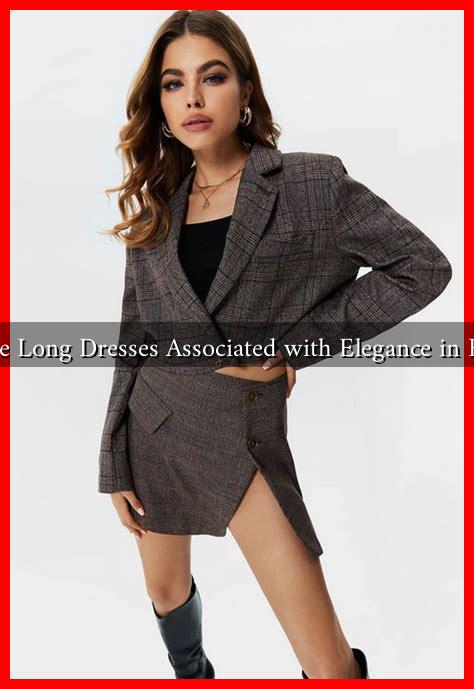-
Table of Contents
Why Are Long Dresses Associated with Elegance in Fashion?
Long dresses have long been a staple in the world of fashion, often synonymous with elegance and sophistication. From red carpet events to formal gatherings, the flowing silhouette of a long dress captures attention and admiration. But what is it about these garments that makes them so closely associated with elegance? This article delves into the historical, cultural, and psychological factors that contribute to the perception of long dresses as symbols of grace and refinement.
The Historical Context of Long Dresses
The association of long dresses with elegance can be traced back through centuries of fashion history. In various cultures, long garments have been worn by the elite and aristocracy, signifying status and wealth. For instance:
- Ancient Civilizations: In ancient Egypt, long flowing dresses were worn by both men and women, often made from fine linen and adorned with intricate jewelry.
- Medieval Europe: During the Middle Ages, long gowns were a hallmark of nobility, often featuring luxurious fabrics and elaborate designs.
- Victorian Era: The 19th century saw the rise of the long evening gown, which became a symbol of femininity and social standing.
These historical precedents have laid the groundwork for the modern perception of long dresses as elegant attire, reinforcing the idea that length equates to sophistication.
Cultural Significance and Symbolism
Long dresses often carry cultural significance that enhances their association with elegance. In many cultures, specific styles of long dresses are worn during important ceremonies and celebrations. For example:
- Bridal Gowns: Long wedding dresses symbolize purity and tradition, often designed to create a dramatic effect as the bride walks down the aisle.
- Traditional Attire: In cultures around the world, long dresses are worn during festivals and rituals, representing heritage and identity.
- Red Carpet Fashion: Celebrities often choose long gowns for high-profile events, reinforcing the idea that these garments are the epitome of elegance.
This cultural significance adds layers to the perception of long dresses, making them not just a fashion choice but a representation of values and traditions.
The Psychological Appeal of Long Dresses
Beyond historical and cultural contexts, the psychological impact of long dresses plays a crucial role in their association with elegance. Research in fashion psychology suggests that clothing can influence how individuals perceive themselves and how they are perceived by others. Long dresses often evoke feelings of:
- Gracefulness: The flowing nature of long dresses allows for movement that can appear more fluid and graceful.
- Confidence: Wearing a long dress can enhance a person’s stature and presence, leading to increased self-esteem.
- Feminine Allure: Long dresses often emphasize curves and create a silhouette that many find appealing, reinforcing traditional notions of femininity.
These psychological factors contribute to the overall perception of long dresses as elegant, making them a popular choice for various occasions.
Case Studies and Examples
Several fashion icons and designers have played pivotal roles in popularizing long dresses as symbols of elegance. For instance:
- Audrey Hepburn: The actress famously wore long gowns in films like “Breakfast at Tiffany’s,” cementing her status as a style icon.
- Christian Dior: The introduction of the “New Look” in the 1940s featured long, flowing skirts that revolutionized women’s fashion and emphasized elegance.
- Modern Designers: Brands like Valentino and Elie Saab continue to create stunning long dresses that grace red carpets and fashion shows worldwide.
These examples illustrate how long dresses have been embraced by influential figures in fashion, further solidifying their association with elegance.
Conclusion
In conclusion, the association of long dresses with elegance is a multifaceted phenomenon rooted in history, culture, and psychology. From their historical significance as symbols of status to their cultural relevance in ceremonies and celebrations, long dresses have maintained their place in the fashion world as a representation of grace and sophistication. As fashion continues to evolve, the allure of long dresses remains timeless, proving that elegance is not just a style but a statement.
For more insights into fashion history and trends, you can explore resources like Vogue and Harper’s Bazaar.



